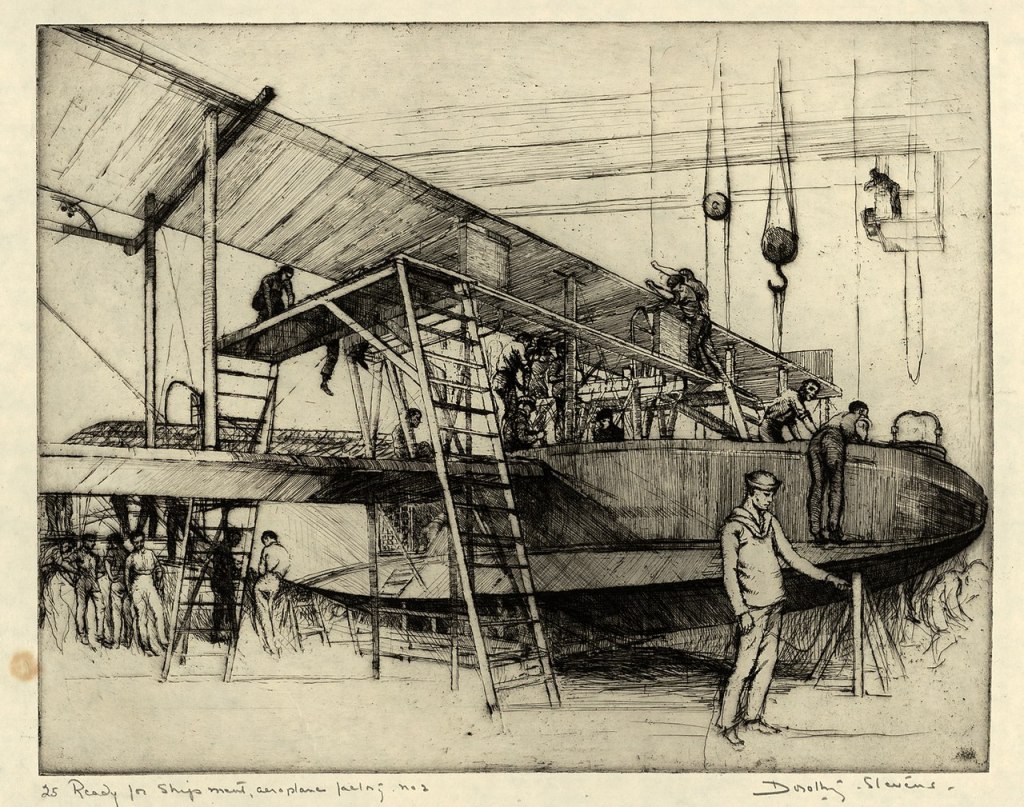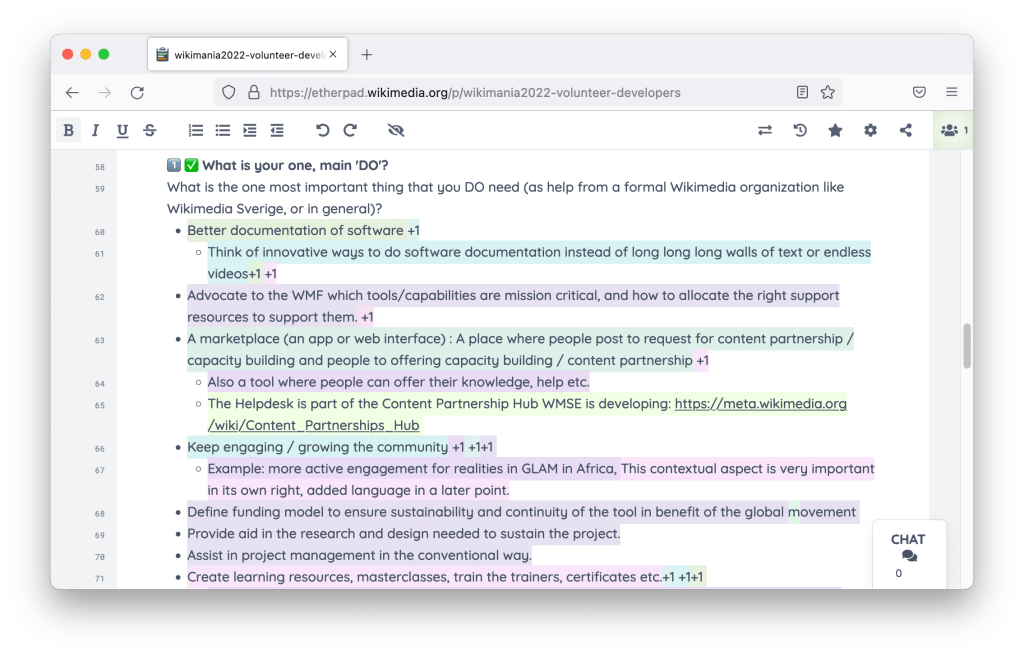
Wikimedia Sverige is experimenting with the development of a thematic hub for content partnerships in the Wikimedia movement. One area of experimentation is: how can the Wikimedia movement better support software development of strategically important tools used in content partnerships?
Many of these tools are created and maintained by volunteer developers in the Wikimedia movement. Sometimes, these tools are not actively maintained and improved. Sometimes new developments in the Wikimedia movement create a need for new features or even entirely new tools (for instance: tools that support Structured Data on Commons, which was deployed for the first time in 2019).
A group discussion with volunteer developers at Wikimania 2022
To kick off this conversation, we held a group discussion on August 13 at Wikimania 2022. This session was open to anyone who builds and uses such tools (Wikimedia tool developers, Wikimedia affiliates and end users) to talk about a plan of action for collaborative work on sustainable partnership software in the upcoming years. The key questions for this discussion were:
- What is important to everyone involved, and
- What do we need to make this work?
More than 30 people participated in this session. Brainstorming was done collaboratively: participants answered various questions in a shared Etherpad document.

What did we learn from the group discussion?
Some general observations:
- Many participants agreed that we shouldn’t keep relying on Magnus Manske‘s and other volunteer developers’ free time to fix problems.
- Many people ask for good end user documentation, training and support… these are aspects that are closely related to software development, but that are covered elsewhere in the content partnerships hub: capacity building and the helpdesk.
- Everyone who contributed to the Etherpad seemed to agree that it is OK for a formal organisation (like a thematic hub) to step in and to take over tasks from volunteer developers. Preferably, this would be tasks that volunteer developers don’t like to do: project management, writing documentation, promotion of the software, and maintenance tasks that are seen as boring or cumbersome. Volunteer developers generally enjoy experimenting and innovating; they should keep that role (and be encouraged and supported in it).
Do you agree with these conclusions?
In general, we find the feedback very encouraging for further experimentation in a content partnerships hub – we feel that there is a ‘green light’ and even encouragement to take action in prioritizing and in starting to support key tools in a more long-term and sustainable way. But is this observation correct? Although this discussion at Wikimania was very lively, with more than 30 participants, we are aware that many voices were still not heard there. This post is an invitation for more input, especially in the case of disagreement or important additions. If you read the contributions to the Etherpad, and the summary above: do you agree, or disagree? We would really like to hear your feedback, which you can leave on the talk page of the on-wiki version of this blog post, or e-mail to sandra.fauconnier![]() wikimedia.se.
wikimedia.se.
Next steps?
This conversation was an early step in a longer process. In the next months, Wikimedia Sverige will initiate conversations on other topics as well: including decision-making and prioritization; financing of software development and maintenance. We are working on a longlist of tools, and are preparing a survey for end users of Wikimedia content partnerships software, to help decide which tools most urgently need support in the short and longer term. The Software page of the content partnerships hub will be updated as more of these conversations are held and as more activities develop, and we will reach out to the relevant communities accordingly. Let’s continue this journey together!

Can you help us translate this article?
In order for this article to reach as many people as possible we would like your help. Can you translate this article to get the message out?
Start translation